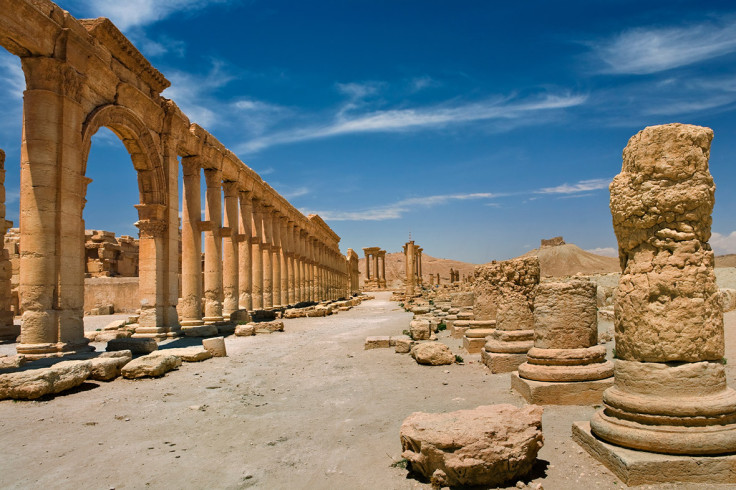Palmyra: Isis 'vows to destroy statues' but preserve ruins in radio statement

A Syrian radio station has broadcast a declaration from an alleged Islamic State (Isis) commander in the recently seized Syrian ancient town of Palmyra claiming the jihadist group will "destroy statues" representing idols but preserve the historical monuments and the ruins.
The statement from purported IS commander Abu Leith was aired by Alwan (Colour) FM, a local Syrian radio station founded in 2013 by Ahmad al-Qadour, an opposer to the Assad regime. If confirmed, it would represent the first official IS stance on the 2,000-year-old world heritage site, which is under threat of being destroyed by the jihadist group according to archaeologists and experts.
On 27 May, the extremist group released a 90-second clip on the IS-linked Amaq news agency showing an overview of the ancient site. One shot of the footage, which was filmed without sound and people, showed black smoke rising behind ruins.
"Concerning the historical city, we will preserve it and it will not undergo damages insh'Allah [God willing], but what we will do is to pulverise statues that the miscreants used to pray for," a man, believed to be Abu Leith, says in the audio recording. "As for the historical monuments, we will not touch it with our bulldozers as some tend to believe."
Damascus-based antiquities director Maamoun Abdulkarim analysed the audio and told IBTimes UK he finds the IS statement hardly surprising. "We know their mentality and unfortunately we are sure that they will destroy the statues," he said.
Abdulkarim said he managed to get in touch with his colleagues in the oasis city after more than five days. "The situation is quiet; there's no armed fight or damage at the moment; the museum is closed," he said. "My purpose now is to push the local community to find the goodwill to fight IS. We have some hope but we're very pessimistic on the whole because this group is barbaric."
IBTimes UK could not independently verify the authenticity of the audio.
The alleged IS commander begins the statement claiming that electricity and water are being reinstated in Palmyra and inviting the local population to "pursue their everyday life in a regular manner".
Abu Leith also says the infamous local prison was empty except for a few prisoners. "I don't know their identities, but among them are non-Syrian Christians that will convert to Islam," he said.
The UN describes Palmyra as a site of "outstanding value". An ancient metropolis and a caravan hub of several civilisations, Palmyra is full of precious sculptures and artefacts. It is renowned for its urbanism – a unique mix of Roman architecture with Greek-Persian and Babylonian influences. It is admired for its famous colonnaded main street and revered in particular for the temple of Baal, considered one of the most important cultural monuments of the entire region.
© Copyright IBTimes 2025. All rights reserved.






















